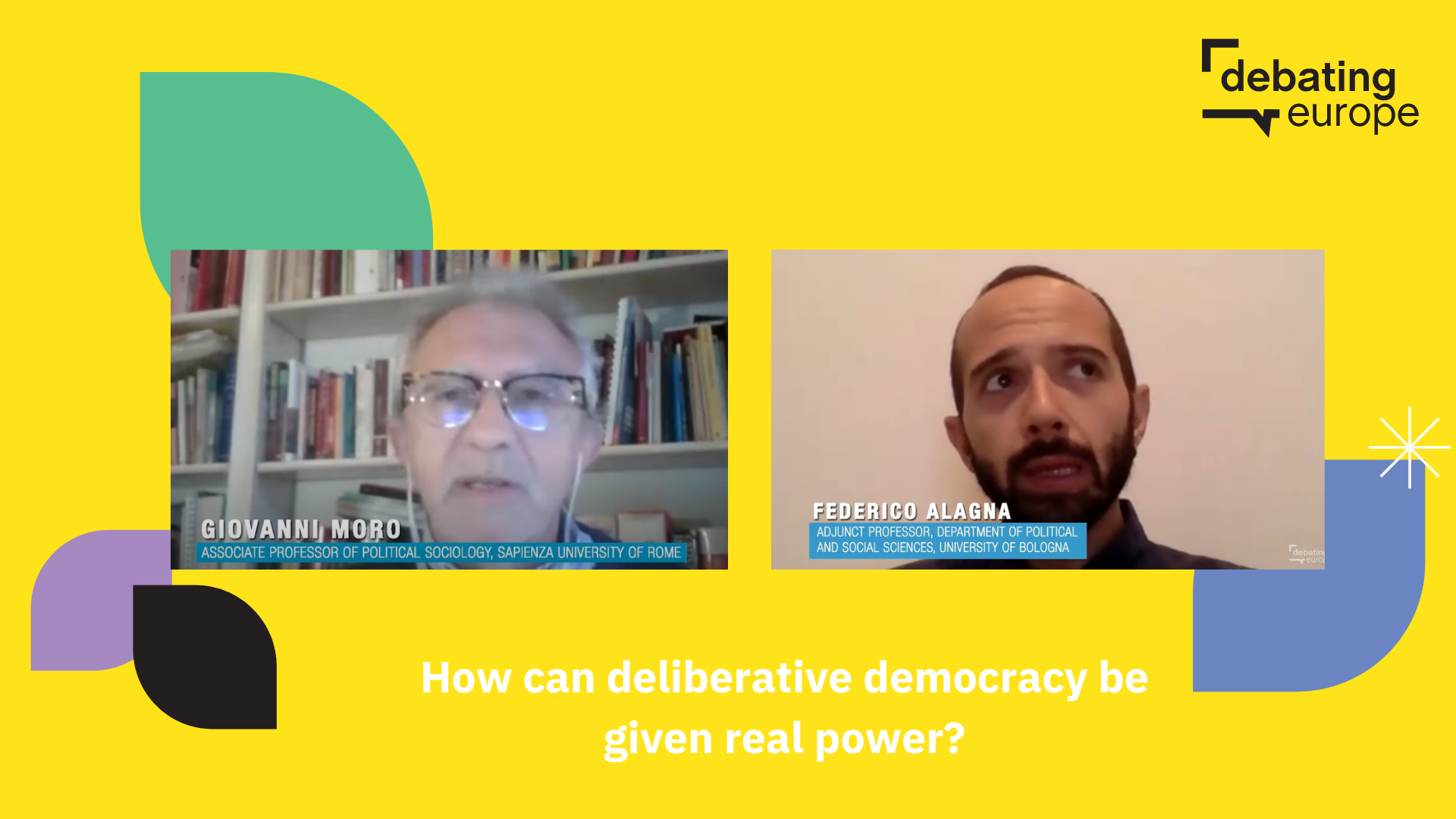Events
How can deliberative democracy be given real power?
Material
Download
Could deliberative approaches help regenerate democracy? Around the world, democracies are struggling to respond to increasing levels of disinformation, polarisation, erosion of political norms, lack of media plurality, and even full-blown democratic backsliding (including the undermining of civil rights and rule of law).
In order to discuss solutions with citizens, Debating Europe, in partnership with Fondazione Cariplo, organised a series of online focus groups with 40 young Europeans to think of ways to regenerate European democracy. The report summarising the output of our focus group discussions was published at Friends of Europe’s high-level State of Europe roundtable event in Brussels on Thursday 27 October.
You can read the report here.
One of the most popular ideas from citizens was to work to establish and institutionalise deliberative processes (e.g. citizens’ panels such as the Conference on the Future of Europe) into traditional policymaking at European, national and local level.
We took some of the comments and ideas on deliberative democracy generated during our discussions and put them to Giovanni Moro, Associate Professor of Political Sociology, Sapienza University of Rome, and Federico Alagna. Adjunct Professor at the Department of Political and Social Sciences, University of Bologna (and an activist in movements and platforms related to municipalism). How would they respond? Check out the video at the top of this post to find out!
How can deliberative democracy be given real power? Could deliberative processes like the Conference on the Future of Europe help regenerate democracy? How can democratic citizen input feed meaningfully into policymaking, without producing ‘democracy washing’ or ‘talking shops’? Let us know your thoughts and comments in the form below and we’ll take them to policymakers and experts for their reactions!
Editorially independent content supported by: Fondazione Cariplo. See our FAQ for more details. Funded by the European Union. Views and opinions expressed are however those of the author(s) only and do not necessarily reflect those of the European Union or the European Commission. Neither the European Union nor the granting authority can be held responsible for them.
![]()
